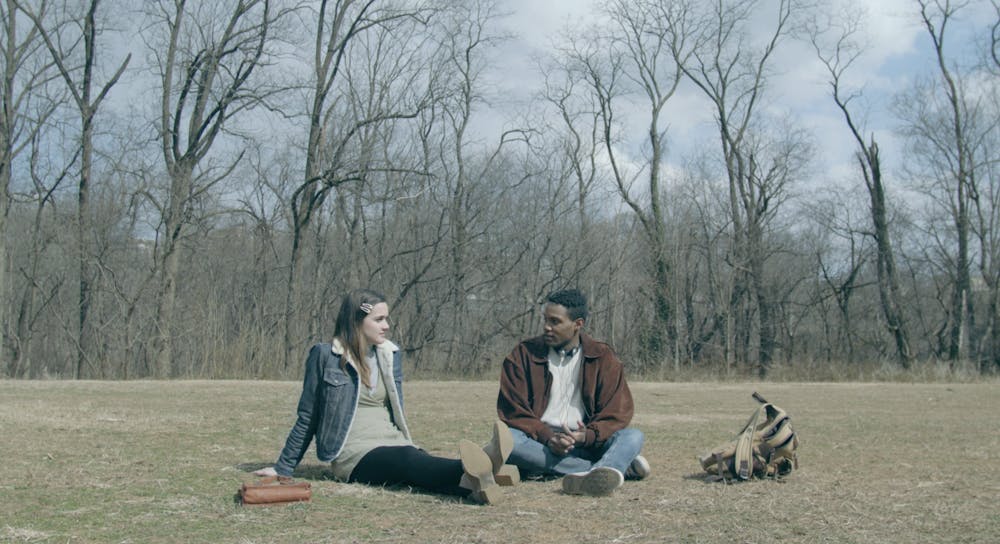Set to officially premiere in 2021, Hopkins senior Rebecca Penner and ‘20 alum Carver Bain won Best College Long Narrative at the 2020 Fort Lauderdale International Film Festival (FLiFF) with their film “How To Care For Strangers.” With Penner’s skills as a Film & Media Studies major and Bain’s insight as both a Film & Media Studies and Theatre Arts & Studies minor, the pair was able to combine forces to co-write this energetic film.
Penner and Bain started writing the film in 2018 and started shooting in spring of 2019. The entire production process took them two to three years, and their dedication to the project became even more evident in 2019 when both Penner and Carver studied abroad but continued to work on the film miles apart via video calls.
In an interview with The News-Letter, Penner detailed the process of making the film.
“We started working on it right when we met, actually,” she said. “We were in a play together for Barnstormers. It kind of started off as a joke, like ‘What if we made a movie?’ So we went through all these weird ideas and ended up making it real.”
As told on their website, “How To Care For Strangers” is a film that focuses on two teenagers, Eden and Foster, “who find the world to be bleak and devoid of meaning.” The two characters begin living in an alternate, colorful world that reflects a child’s fantasy; however, this quickly evolves into a nightmare as they recognize their flawed view on the world they left behind.
The feeling of everything being new and exciting in childhood — like trying new candy, picking up new hobbies or simply exploring the world — can often get lost through aging. In adulthood, these things that were previously reinvigorating can start to feel dull and boring, so the film portrays the desire to rediscover that colorful and fun vibrancy no matter the age.
Penner also explained that the fantasy element to their film was not only appropriate for the film’s theme but also drew people in during such universally dreary times. For viewers who have been stuck at home with family during the ongoing pandemic, this film becomes all the more relatable, as being at home can cause one to feel almost trapped in the in-between state of childhood and adulthood.
The pair described how they aimed to emphasize this blurry line throughout Eden and Foster’s adventure, stating that the experience between childhood and adulthood often isn’t explicitly addressed in short films. The pair sought to bring out that tension, as well as the tension between Eden and Foster, to make the film more impactful and energizing.
Penner and Bain, though good friends and colleagues, still have differences as individuals. This influenced their decision to give their film two lead roles instead of one; although the characters aren’t totally representative of their real-life counterparts, they found it easier to relate to their fictitious characters and all of their differences in a way that only further highlighted this clashing tension throughout the plot.
It’s important to take notice that this underlying tension as well as the motif of wishing for a different world, yet being stuck in-between the two of them, is quite representative of our society today. In the midst of COVID-19 and societal and political worlds clashing, we may be inclined to feel similarly to Eden and Foster. However, it’s also important to acknowledge the underlying juxtaposition present, which is that in order to bring change, we need to hold onto each other’s companionship.
Penner and Bain received a Mellon Arts Innovation Grant to create “How To Care For Strangers.” It employs magical realism to explore the nature of nostalgia and human connection. According to their site, they are “currently in the development phase for their next short film, a dark comedy exploring self-imposed guilt and superficial familial relationships.” With the duo’s win at FLiFF, combined talent and widespread support, this only marks the beginning of their collaborative journey.
“How To Care For Strangers” will be a great film to watch upon its release this year, and it is also a wonderful representation of the success of our fellow colleagues’ dedication and hard work. It brings to the surface the suspended, almost transitional state many of us are feeling in 2021 and may reflect our collective desire for things to go back to their normal, colorful, child-like selves.





